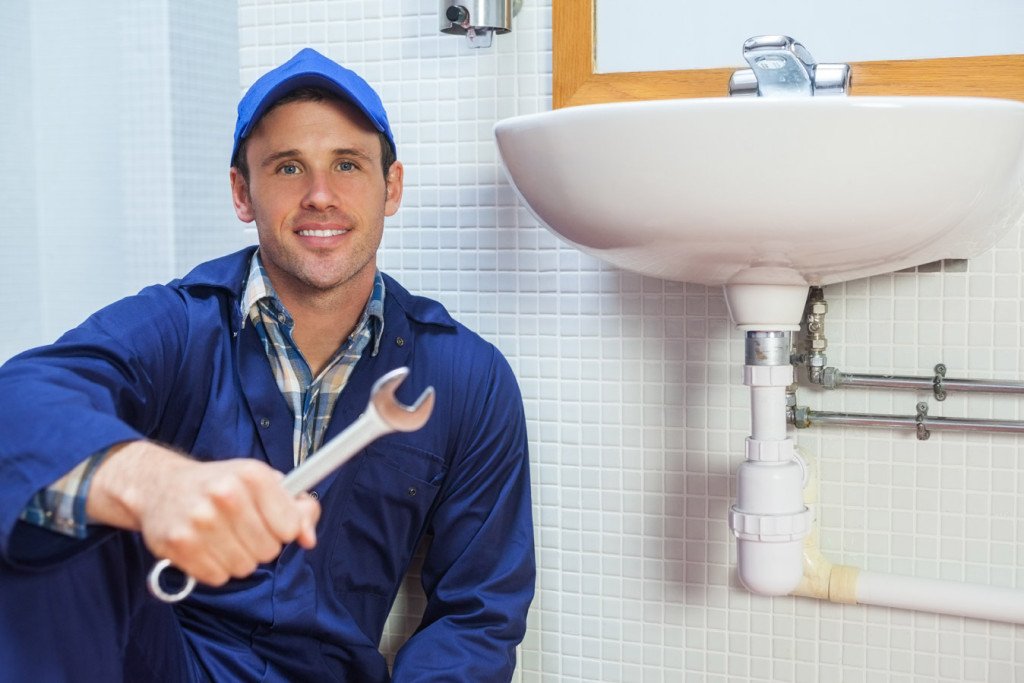A New Homeowner's Guide to Effective Bathroom Plumbing Management
A New Homeowner's Guide to Effective Bathroom Plumbing Management
Blog Article
What're your beliefs on Smart Plumbing Tips for New Homeowners?

For brand-new homeowners, understanding and preserving shower room pipes can conserve both money and time by stopping expensive problems down the line. Below are some essential restroom plumbing tips to help you keep everything running smoothly.
Familiarize Yourself with the Main Shut-Off Valve
Understanding where the primary water shut-off valve is located in your home is important. This enables you to rapidly shut off the supply of water in case of major leaks or during plumbing emergencies, preventing extensive water damage.
Routinely Examine for Leaks
Small leakages can cause large issues. On a regular basis inspect under sinks, around bathrooms, and near plumbing fixtures for any kind of indicators of leakages. Search for dampness, small drips, or corrosion. Capturing and repairing leaks early can protect against extra severe damage and save water.
Do Not Overlook Slow Drains
If your sink or bathtub is draining gradually, it's commonly an indication of a clog creating. Resolving this early can prevent a full obstruction. Use a bettor or a plumbing technician's snake to remove particles. Avoid making use of chemical drainpipe cleaners as they can harm your pipelines in time.
Know What Not to Flush
Toilets are not waste disposal unit. Prevent flushing anything aside from toilet tissue and human waste. Products like wipes, womanly hygiene items, and cotton swabs need to be taken care of in the trash to avoid clogs and sewage system backups.
Mount Strainers in Drains
Location strainers in your sink and tub drains to capture hair and various other debris prior to they enter your plumbing system. Cleansing the filters on a regular basis will aid stop build-up and keep water moving freely.
Keep Your Water Heater
Ensure your hot water heater is readied to an ideal temperature (normally about 120 degrees Fahrenheit) to prevent scalding and lower power usage. Flush the tank every year to get rid of debris buildup, which can minimize the efficiency and lifespan of your heating unit.
Update Your Components
If your home has older components, consider updating to extra efficient designs. Modern commodes, showerheads, and faucets are made to use less water while supplying excellent pressure, which can considerably minimize your water costs and environmental footprint.
Be Cautious with Do It Yourself Pipes Repairs
While it's tempting to deal with all home fixings by yourself, be cautious with plumbing. Some issues may need specialist knowledge, particularly if they entail major water lines or sewer repairs. Employing an expert can in some cases be a lot more cost-efficient than do it yourself, especially if it prevents further damage.
Get Ready For Cold Weather
Safeguard your pipes from freezing during cold weather by insulating pipes in unheated locations like basements, attic rooms, and garages. Throughout severe cool, allow cold water drip from taps served by subjected pipes to assist avoid freezing.
Schedule Regular Maintenance
Take into consideration organizing yearly examinations with a qualified plumber. They can spot concerns that you may miss out on, such as concealed leaks or wear and tear on pipes and components. Normal upkeep assists expand the life of your plumbing system and can avoid emergencies.
Conclusion
Understanding and keeping your home's bathroom pipes can protect against lots of typical issues. By following these essential tips, you can guarantee your shower room stays functional and reliable, conserving you time and money in the long run.
Essential Plumbing Tips for Homeowners: Keep Your Pipes Flowing Smoothly
As a homeowner, understanding the basics of your plumbing system can save you time, money, and a lot of headaches. Plumbing issues can range from minor annoyances like dripping faucets to major problems like burst pipes that cause significant damage. This guide provides essential tips to help you maintain your plumbing system and tackle common issues.
Understanding Your Plumbing System
Supply System: Brings fresh water into your home from a municipal source or a well. Drain-Waste-Vent System: Removes wastewater and vents sewer gases outside. Fixtures and Appliances: Includes sinks, toilets, showers, dishwashers, and washing machines. Basic Maintenance Tips
Regular Inspections: Periodically check for leaks, corrosion, and other signs of wear and tear. Look under sinks, around toilets, and near water heaters. Know Your Main Shut-Off Valve: In case of a major leak, you’ll need to shut off the water quickly. Ensure everyone in your household knows where the main shut-off valve is located. Prevent Frozen Pipes: In cold climates, insulate exposed pipes and let faucets drip during extreme cold to prevent freezing. Use Strainers: Install strainers in sinks and tubs to catch hair, food particles, and other debris that can cause clogs. Common Plumbing Issues and Solutions
Clogged Drains:
Prevention: Avoid pouring grease down the drain and use drain screens to catch debris. DIY Fix: Use a plunger or a plumbing snake to clear minor clogs. For stubborn clogs, a mixture of baking soda and vinegar can sometimes help. Leaky Faucets:
Prevention: Replace washers and seals regularly. DIY Fix: Turn off the water supply, disassemble the faucet, and replace worn parts.
:max_bytes(150000):strip_icc()/woman-fixing-sink-de54d945295a438c86072f78415c3e0e.jpg)
Browse Our Site Report this page